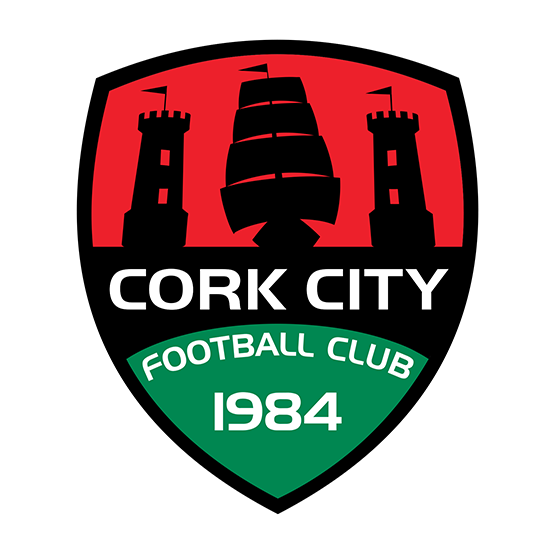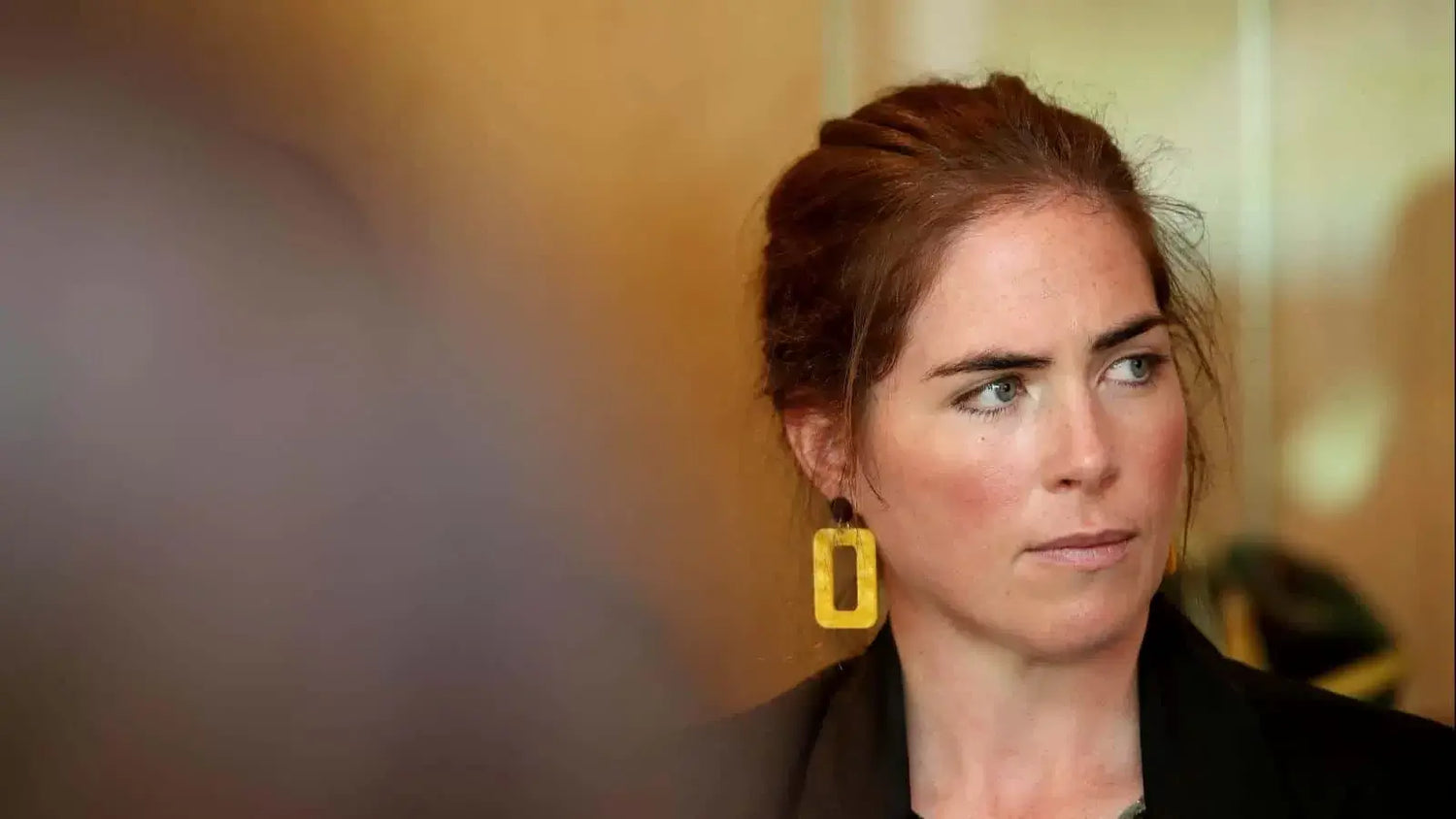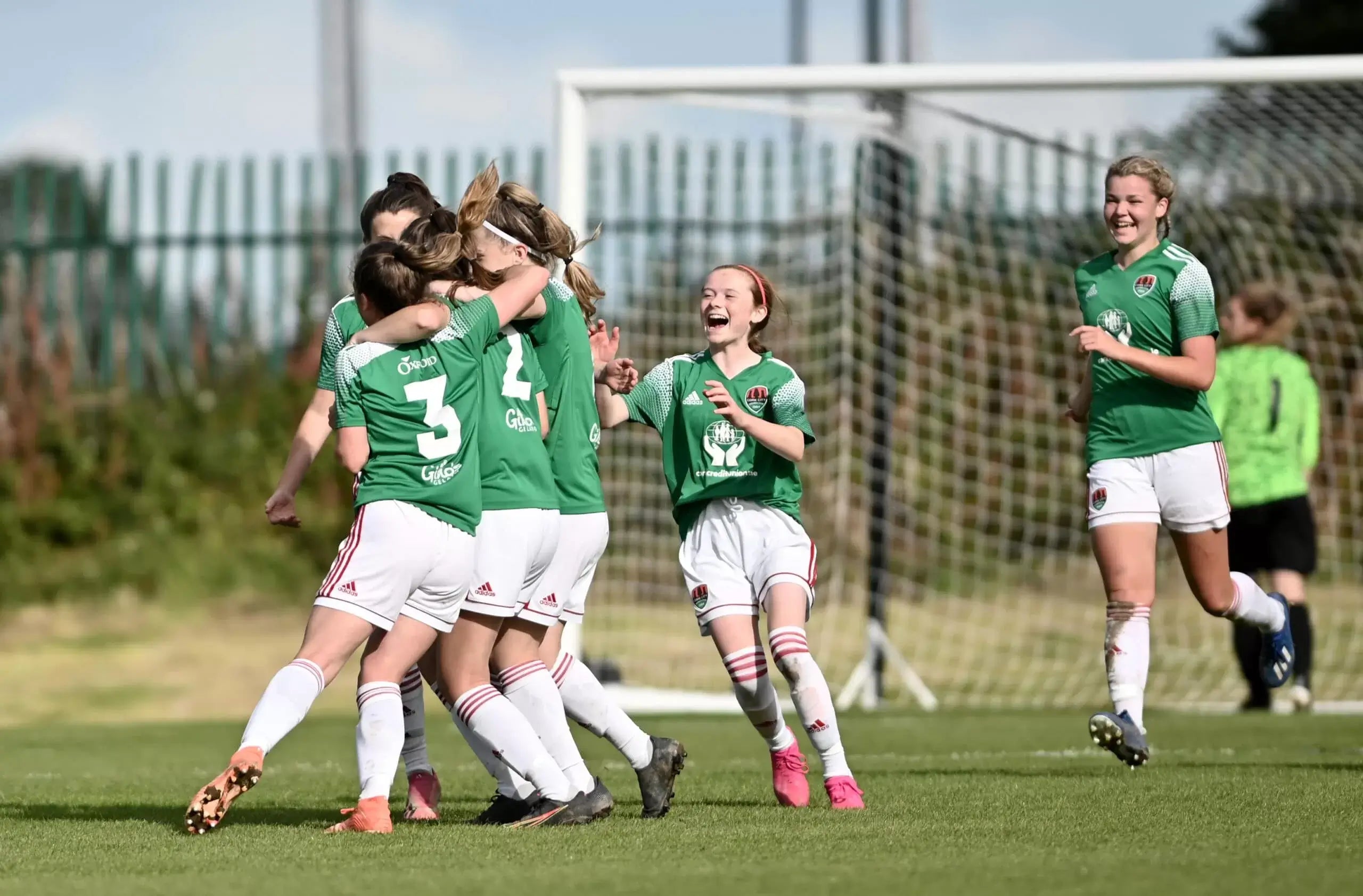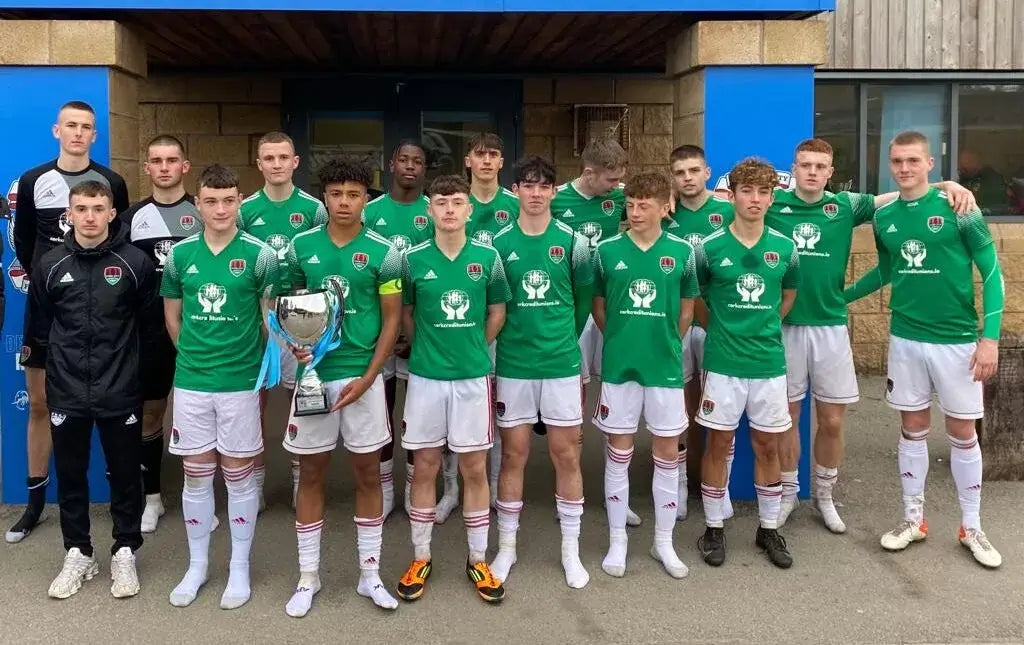Article originally published in City Edition, written by Chris O'Mahony
Nora Stapleton excelled in multiple sports in her long career, winning major honours in rugby, soccer, and Gaelic football and is now transferring her successful mentality on the field to her role as Women in Sport lead with Sport Ireland.
The main focus of her role is to implement the Women In Sports Policy, which features four principal areas - leadership and governance, coaching and officiating, active participation, and visibility. It’s a huge task but one she is relishing.
The Donegal native is best known for her rugby exploits, having represented Ireland in three World Cups and helping Ireland to two RBS Six Nations titles, including a Grand Slam. She also won three FAI Cups with UCD, played in the Women’s Champions League and won All-Ireland titles at intermediate and junior levels with her home county. This wealth of experience informs her current role and helps her see how improvements are being made across the board in women’s sport in Ireland.
“From a leadership and governance point of view, there is more positive conversations occurring around the work that national governing bodies are doing to increase the number of women on their boards and committees and that is so important," says Nora. “The conversation has shifted to ‘this is what we are doing and ‘these are our aims’ as opposed to some time ago, where it might have been ‘well, we can’t do that’. So, we are not getting excuses anymore for the main part which is great.
" Some of the visibility work we have done is just so great. It was Her Outdoors Week recently, which was a participation campaign for females and that really was a huge success, with so many people participating in the initiative. We had collaberation between the national governing bodies and the sports partnerships to set up events for people to try something new and the whole idea of the week was to celebrate being active and outdoors and to try something new and we saw a huge buy-in from everyone.
“We have also had the likes of media training for females and we had a huge influx of applications from females eager to sign up to this media training and it is really positive to see the number of female analysts, panelists, and commentators that we are now watching on live sport and I think that is certainly something that has shifted and changed over the last 24 months.”
There are also many strides being made in the background and while these are all positive, they also provide further challenges and opportunities for Sport Ireland.
“From an officiating point of view, it is positive to see women such as Michelle O’Neill at the highest level,” says Nora. “When it comes to coaching, we know that we definitely don’t have enough. Haley Harrison went to the Olympics and she is Thomas Barr’s coach but how do we ensure that it becomes normal to see female coaches with international teams regularly as opposed to being surprising? So, we are working hard to try and shift those percentages. We have done an awful lot but we are aware that, in some cases, we are only tipping the iceberg and we have a long way to go.”
While there is a wide variance in the aspects of Nora’s role, she feels that all aspects are important and it would not be right to prioritise any particular one over the others.
“They are all pretty important,” she says. “We have developed a resource, the gender diversity in sport toolkit, for those that need to increase the number of women on their board. That project is vital for us to continue and we will continue to roll out webinars that will upskill people in the toolkit and the benefit of it.
“A big project that we will be start shortly is a Women In Sport toolkit, which is an interactive toolkit that the sports sector can pick up and utilise, and we will host a lot of webinars and workshops around it. The idea of this toolkit is that it will help you recruit women’s coaches and to set out your plan for women coaches and what it is you want for your organisation. It will help you to recruit, develop, and retain women’s coaches within your sport. It is designed to try and provide as many suggested actions as possible, because one action may suit one sport but it may not suit another.
“That is due to come out next month and we are excited to push that whole area of coaching, because if you have more women’s coaches you have more volunteers in the network. The research tells us that women coaches may benefit the retention of young girls in sport and that more women coaches will lead to more women coaches."
"A lot of the research we did told us that when girls or young women see and are coached by other women, it does and can inspire them to take coaching on as a pathway, not just when they are still playing or competing but also when they finish playing.”
Government funding for the roll-out of the vast array of programmes in Women In Sport has recently been increased, but Nora’s ambitions are higher still.
“I think it has been hugely positive that we have increased the budget by €1 million this year and that budget goes out to the governing bodies and there is an application process for that,” she says.
“It obviously doesn’t cover absolutely everything that is done through Women In Sport, but it is important that we are able to increase that budget to contribute to a lot of the programmes that the sports run. It also supports some of the work we do internally as well. So the two ministers, Catherine Martin and Jack Chambers, have met myself, the Women In Sport committee, and Sport Ireland and gave us an opportunity to outline what we do and they are always very proactive and positive to anything that we have outlined that we hope to attain and things like that which is fantastic.”
She might not always be front and centre of launches and unveilings, as she primarily works behind the scenes with national governing bodies and sports partnerships.
However, the showcasing of and public consumption of women’s sport is a major focus for the former Donegal footballer, UCD soccer player, and Ireland international rugby star.
“The whole thing about women in sport is that everybody is a stakeholder,” she says. “You can be a charity, a brand, a sports agency, a media agency, and the topic of women in sport should be ingrained in all that we do in society and so it’s not just about sport and what the sports are doing. It is everything from the commercialisation of it and what their brands are doing regarding that sponsorship.
“It is all so vital; you collaborate with different people at different times depending on the project that you feel needs to be encouraged. So, if we are talking about a teenage girls’ programme, then that is mainly local sports partnerships, and they link in with some of the youth outreach support services and agencies within their locality. Sport Ireland don’t always have to be the ones to collaborate it and communicate with all the stakeholders. We support and we facilitate the national governing bodies and sports partnerships, and they take on so much and they do such good jobs.”
Nora, who has won the FAI Women’s Cup on three occasions, including once at Lansdowne Road, also feels strongly that the main finals of various sports should be played in that sport’s national stadium.
"I think it matters massively,” she says. “Sometimes I get fed up when people say you have to build the crowds first and then you can bring them to the stadiums. If you had to repeat things in the male games you wouldn’t do it that way. The facilities are there, and we are at a stage now where it is about providing equal facilities for both males and females and for whoever is getting to those national finals.
“I think it is essential and when you look at the likes of the Ladies Gaelic Football Association, you’ve seen how that has increased. I think there was just about 20,000 when I played in the final there back in 2010 and it has certainly increased, and a massive part of that increase has been in the last number of years but for me having the opportunity to play in Croke Park was huge.”
Her figures stack up; the most recent LGFA final with a full attendance before the pandemic was the 2019 final, which had over 56,000 spectators, almost trebling the attendance of Nora’s own Intermediate final in just nine years.
She also feels there are other advantages, including creating female role models for girls and boys to look up to.
"When we were growing up, most of our role models were men,” she says. “I followed the Donegal team and I travelled to see them playing in a final when I was 10, so to realise I then had the chance to play in the same stadium was absolutely huge, and we should make it normal that that always occurs. When you put that emphasis on the sport, you’ll see more players coming through, better coaches will get involved.
“If you go back a number of years, if you look at a club you probably have a women’s section within a club, and they have to do all their own fundraising and buying their own jerseys and stuff. There are some clubs that are still like that but if you want to do it properly then it is the club as a whole that looks after all the men’s and women’s teams. So the clubs have to show women as being equal and when you see that kind of respect and support, it has a knock-on effect to the ability of the players, the outcome of the players, the players that want to go to that club, because they see how the club treats all their players with respect and then all that leads to enhancing performances in Ireland and then you are on that route to trying to develop a better league overall. So, I think it is essential, if you want to make the product better, then put the product in a nice facility.
“The reason men’s sport has become so attractive on TV is because of all the close-ups of the action. In women’s sport, you tend not to get that because you don’t have enough infrastructure, so it just doesn’t make it as nice to watch on TV as it could be if it had a better venue, better camera angles, and so on.
"The rugby inter-pros will be shown live on TV for the first time ever and all those games will be played in the main grounds of the provincial teams, but not only is it about the grounds, it’s what you put around it. What kind of promotions goes with the event, how do you make it attractive to fans when they arrive? Even in the lead-up to these big events, we have to be more adventurous and more innovative in how we are engaging fans. Not just because it is fans of women’s sport but because that is the direction we all should be going anyway. It is really about making it an occasion that people will really want to go back to.”
The triumphs of Kellie Harrington and Leona Maguire have been highlights of a great summer for women’s sport in Ireland, but there have been some negatives as well, particularly at grassroots and youth levels.
Cork and Limerick’s women’s Gaelic footballers have rightly complained about underage All-Irelands being cancelled for girls while the boys’ tournaments go ahead, with Cork’s U14 captain writing a strong letter to the LGFA on the matter. Changing codes, some former soccer internationals have tweeted about the lack of assistant referees at U17 level in the Women’s National League in comparison to their male counterparts.
These issues received plenty of coverage on social media. Nora Stapleton, the Women In Sport lead for Sport Ireland, says that while they need to be looked at, the way in which they were highlighted is a positive development.
“You would like to think that both boys and girls would have an equal opportunity to compete and that they wouldn’t be denied that,” she says. “From our point of view, we put full confidence in the governing bodies who are running the sports, and that they are running them as they see fit.
“I do know that both themselves and the Camogie Association are constantly working together to provide season plans and fixture lists to try and accommodate all players. I don’t think it is out of any badness that they have cancelled fixtures, but we do leave that to the national governing bodies to work through.
"However, at the same time it is positive to see younger players taking action and taking an interest in how their sport is run and that they are asking questions of their governing body, because the governing body is there for volunteers, it’s there for their, members and these players should feel like they can provide input into that. I think it is really positive when you see younger girls and other women questioning that.
“In terms of the assistant referees, from my knowledge of sport there would be a grading for the various competitions and then the referees are appointed through that.”
“The whole reason we have focused on officiating as one of our target areas is to help increase the number of women who are officiating. It’s about increasing the pool of referees and then the co-ordinator decides where that referee goes.
“We have seen it in other sports where some really proactive programmes and initiatives have been set up to try and support the competitions that are occurring with assistant referees, for example, and that is used as part of the project to grow numbers. At the same time, it is used to try and get support and get more referees to a particular venue at a particular time. With the U17 competition, it is a relatively new competition in its third year, so what you would like to see is a commitment from the FAI as to when that will be reviewed and when they will receive the same level of officiating as their male counterparts.
“I think it is important to understand what is behind the decision-making in these situations rather than just giving out. I always think these things are better solved when we are all proactive about it and we ask questions and then we map pathways for the future rather than demanding now, now, now.
“I hope women and girls continue to ask questions where they can see that they are treated differently because of their gender. A lot of the time it’s not out of badness it is just not thinking or not realising how it could affect somebody. So sometimes it is just about raising the issue so that it can be addressed.”
When it comes to the coaching aspect of the Women in Sport policy, Nora feels that women-only coaching courses have some benefits, but there are also many drawbacks to singling out women as coaches in this way.
“That’s what I mean when I say stop trying to fix the women,” she says. “If you are not getting women on your coaching courses then it’s not just because you must set up a different course just to get the women on it, it’s that they may not feel welcome in some of the courses that you run. So how do you ensure that a woman feels just as welcome to go on your coaching courses and feel like they belong there, as opposed to feeling like they lack confidence to do it in front of men?
“A big thing for women is that they have loads of confidence in their ability as a coach and when they are working with players. This is because they go beyond and nearly do more research, more coaching courses, and more upskilling in order to feel that way. Then when they have to go in front of men, that can be where the lack of confidence comes in and they may start doubting themselves because of how they feel in whatever environment that is.
"We have done a good bit of research on this and female coaches said have they felt undermined and devalued. I wasn’t prepared for that and didn’t know that would be in the findings at all, and it was quite striking how they don’t feel accepted by men as a coach.
“Female-only courses are run across a number of sports and a big thing that can come from women-only courses are that suddenly, as a woman, you can meet other women who are like-minded and battling the same battles that you are having trying to be a female coach in a male-dominated environment. That is one of the benefits to the women-only courses and a big thing with them is the networking and how to keep that networking going so the women feel that they have a bit of a support group and a place where they can talk openly and not get judged.
“The other big thing that comes from them is mentoring. All coaches should have mentors, but particularly women coaches who can really benefit from having a mentor. It doesn’t matter if the mentor is male or female once they know how to mentor and not just tell you what to do.”




Leave a comment
This site is protected by hCaptcha and the hCaptcha Privacy Policy and Terms of Service apply.